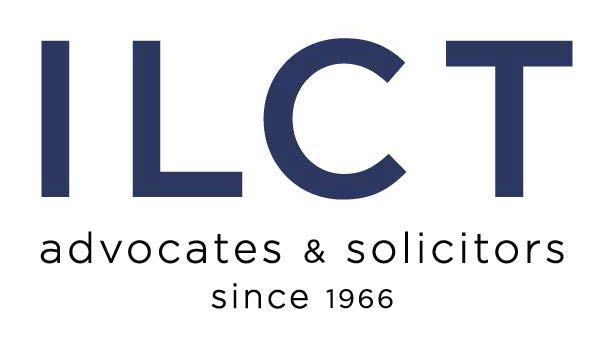Business Operation Manual during COVID-19 Pandemic
With the ongoing COVID-19 pandemic, businesses face many new challenges, whether in connection with the working condition, financial stability or management of their human resources. With the implementations of several announcements under the Emergency Decree on Public Administration in Emergency Situation B.E. 2548 (2005) (“EPAES”), Communicable Diseases Act B.E. 2558 (2015) (“CDA”) on top of the new social distancing guideline and hygiene protocol, businesses are forced to make unconventional changes to their usual operation. Transitions can be messy with multiple legal implications, thus, below are some of the possible paths allowable under the Thai Labour Protection Act B.E. 2541 (“LPA”).
Path 1: Financial Cutbacks
Seeing the current COVID-19 situation in addition to the new social distancing guideline. It can be difficult for businesses to operate under these new conditions. Business sectors such as: restaurants, airlines or hotels are only some of those heavily affected. Understandably, some businesses may be forced to tune their financial stability by various means. A pay-cut policy is possible only if the workers consented to it, but in reality, it will not be that easy. The LPA protects the payment of salary under the “Condition of Employment”, a pay-cut would mean a decrease in the Condition of Employment, therefore, not allowed by law.
On one hand, businesses may make a plea to the Labour Department (Inspector) that the business is suffering financially from COVID-19’s impacts. Under this method, businesses may cut up to 25% (maximum) from the usual worker salaries. Currently, the Thai Labour Department is providing an online portal to make the said plea (https://s97.labour.go.th/pub_m75/M75Form.php). Note that the company must notify the workers and Labor Inspector at least three days prior to implementing such measure.
On the other hand, business may also invoke “force majeure” to temporary close its business operation and not pay the salaries at all. With this being said, force majeure should not be taken lightly, it has potential legal backlashes. At this point, it is unclear whether COVID-19 pandemic will be considered as force majeure by the Thai Court.
As a viral outbreak is uncommon in Thailand and there are no clear interpretations whether neither of the two above measures are legally correct. To avoid a messy lawsuit, it is best to obtain consent from the workers and seek legal advices.
Path 2: Layoffs
For layoffs, businesses must pay severance payments. The LPA stipulated that the severance payment must be calculated based on each worker’s length of service. Intentionally withholding the severance payment has real legal consequences. Nonetheless, there are exceptions that would excuse businesses from paying the severance payment. Termination from embezzlement, willful misconduct or severe disobedience breaching the company’s work rules would be examples of such. Nonetheless, there must be evidence to support these severe termination claims.
With this being said, layoffs due to COVID-19 does not fall under the exceptions. Terminations from financial loss or bad economy does not warrant for withholding the severance payment. Unwarranted actions are likely to bring about the “unfair termination” lawsuit that could escalate to a court battle. If true, businesses will have to prove to the court that there are no other alternatives except layoffs and withholding the severance payment.
The simplest approach would be to negotiate with the workers and come to a mutual termination agreement. This way the severance package can be negotiated leaving both parties satisfied while also minimizing legal backlashes.
Path 3: Social Distancing
The so called “social distancing” is undoubtably one of the most popular options in the digitized world. Working remotely has never been easier, many new applications such as: Skype, Microsoft Team, Zoom or Google Hangouts have enabled businesses to continue their operation without the workers being physically present on site. If full digitization is not possible, businesses may also consider separating workers into teams and create a rotating shift system, thereby minimizing unnecessary contacts.
Bear in mind that any change to the work rules must comply with the law and fully consented by the workers. Again, the LPA protects the “Condition of Employment”, this is including: working hours, salaries, working environment and so on. Simply put, businesses are not allowed to implement any new working rules that would be “worst or less favourable” than the usual working rules. Nevertheless, incorporation of social distancing guideline into the work rules is likely to be viewed as a “better or favourable” working rules, provided that the workers are still entitled to the usual salary and benefits along with a formal consent. Still, businesses should be wary that the change of working rules must not create unnecessary hardship for the workers (less favourable working condition). To this end, the social distancing switch is not easy but will allow continuous business operation, as well as, minimizing financial impacts from the COVID-19 pandemic.
Ultimately, it is undeniable that businesses across the globe are feeling the impacts of COVID-19. In preparation of a pro-longed pandemic and shutdown, businesses must adapt and evolve to conform with the new global norms. Regardless of the path chosen, businesses should come to a mutual understanding with their workers before taking further actions. Factors such as: legal, financial, economic, social and ethical are all crucial and should be considered. With no end in sight, businesses are advised to tread lightly as there is no one-size-fit-all path.
By:
Chart Chotiphol
Counsel/Business Development

